“You can do this,” I said as I held Lily’s hand, the scene before me becoming blurry as my eyes welled with compassion.
Lily* turned to look at me, big crocodile tears rolling down her face. “I’m going to let go of your hand now,” she said, her voice breaking with the weight of her fear, the weight of what she was about to do. “Because I want to do it just like you did. Touch it just like you did. With both hands.”
She nodded, a gesture of resolution more for herself than for me, and turned back around.
As this woman I had met only hours before reached her hands forward, time seemed to slow down, as if the universe were pausing to recognize the importance of this small, yet terribly great, act of defiance against a disorder that Lily and I shared: OCD.
She continued to reach forward, and I realized I wasn’t breathing. In that moment her hands were my hands, and I knew in the very depths of my soul the terror that she felt.
“Aha,” I h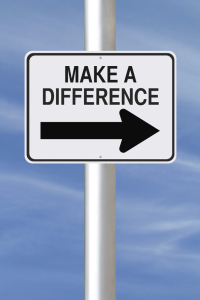 eard a voice inside me whisper, breaking the silence, forcing me to breathe. “This is what it’s all about. This is why you’re both here.”
eard a voice inside me whisper, breaking the silence, forcing me to breathe. “This is what it’s all about. This is why you’re both here.”
One of the themes of the 2015 International OCD Foundation Conference is advocacy. I, like many people, sometimes think of advocacy in terms that are too narrow. That it’s telling your entire story to as many people as possible. Or creating big events to raise awareness. Or having lots and lots of Twitter followers.
But advocacy takes many, many forms—some big, some small. As I stood there with Lily, I had an epiphany. I realized just how powerful small, simple acts to help others can be. I’d like to share, in Part 2 of my Aha! Moments from the 2015 IOCDF Conference, what I learned firsthand, from my transformational experience with Lily, about the tremendous power of everyday advocacy.
My OCD monster
I had started that day with another form of advocacy that I always enjoy: telling tales on my own OCD. In a workshop on coping with OCD and relapse prevention, I shared several recent stories about what it’s like to be in recovery from the disorder. I described my “OCD monster” as a combination of:
- Gollum from Lord of the Rings: constantly and annoyingly obsessed, in the book with his precious ring, and in my life with anything that could bring harm,

- The Tasmanian Devil from Bugs Bunny: frantically hypervigilant and always whirling around scanning my environment for the next thing that’s going to kill me, and
- A dementor from Harry Potter: completely preoccupied with unlikely but utterly terrifying scenes of death and destruction.
I told the workshop attendees that with a combination like that, it would be good to expect OCD to attack every now and then. Even when you’ve been in recovery for years.
Take my advice….I’m not using it
If I’d only remembered my own advice a few hours later, as a line of several hundred people snaked up to an icky, trash-filled dumpster as part of this year’s virtual camping trip led by Jonathan Grayson, Ph.D. It would also have been good for me to remember that this exact scenario was where my OCD flipped out last year.
But no, I was taken completely by surprise.
Just like the “personnel” who were questioning why so many people were lining up to visit this particular dumpster. And since they couldn’t answer that question, they called security.
Let me just say right here that people who have OCD like to follow the rules. To the letter. That if we hear a police siren after we’ve committed even the slightest transgression, such as not completely pushing a shopping cart into the one in front of it in the designated cart return area in a grocery store parking lot so that it has the possibility of dislodging and rolling backwards and causing a car wreck and the potential death of innocent grocery shoppers (whew, yes, I need to take a breath, too), we might get a tiny jolt of fear that law enforcement is coming for us. Even when they are not.
So when they really are, it’s actually quite scary.
Yet another tantrum
This year, my experience on the camping trip was a little different than that of last year, because I was now one of Jon’s helpers. In fact, I had helped Jon plan the route for this evening’s trip. So when my OCD heard that security was coming, and then it saw someone from security talking sternly to Jon, my dear little Gollum/Tasmanian Devil/Dementor threw yet another tantrum:
“NOOOOOOOOOOO! You and Jon are going to get in so much trouble! You both planned this route, you rule breakers! This is it! This is the end! You are headed to jail, where you’ll never be able to participate in another IOCDF conference again! All these people depended on you and you let them down! How could you have been so irresponsibly stupid?!?!?!?!?!”
 Once again, I’m on a camping trip and my anxiety is at unexpected 10/10. I turned to one of the other helpers, who also has OCD, and said, “I’m really triggered right now because my OCD is saying this is all my fault, and Jon and I are going to get in big trouble.”
Once again, I’m on a camping trip and my anxiety is at unexpected 10/10. I turned to one of the other helpers, who also has OCD, and said, “I’m really triggered right now because my OCD is saying this is all my fault, and Jon and I are going to get in big trouble.”
She looked at my dryly and said, “It may or may not be all your fault, and you may or may not get in trouble.”
I love having friends with OCD. They know exactly what to say. I was still at a 10 but that’s good. Because walking squarely into the uncertainty is how to beat OCD.
“Will you do my workshop for me tomorrow if they haul me off to jail?” I was asking this half-jokingly, although my OCD was not. It really wanted to know.
“Of course,” she said, and walked away.
One of the most annoying things about my OCD is that it tries to make it all about me. So if I’m going to act like the OCD content is irrelevant, and lean into the fear and bring it on so that I can crush the OCD episode in its tracks, I need to not make it about me.
Which is where my new friend Lily came into the picture.
“Would you do this?”
I worked at Disney when I was in college, sometimes doing crowd control, and those skills were coming in handy on the camping trip as I was directing a long line of campers to a contamination-related exposure activity.
Lily came up to me hesitantly and said, “Would you do this?”
I had met Lily earlier at another conference activity, but we hadn’t really had a chance to talk.
“Sure,” I said, “If I didn’t need to direct traffic, that is. I did this exposure last year on the camping trip.”
As I was directing people to the exposure, I was still relatively anxious from my OCD’s tantrum. I had been doing my “may or may not statements” in my head since then, but I hadn’t been able to completely come to terms yet with the uncertainty of the dumpster-security-guard-going-to-jail thing. Partly because I was multi-tasking, and partly because I was embarrassingly still engaging in the OCD content, sometimes giving credence in my mind to the “I might really get in trouble” OCD thoughts between my “may or may not” statements.
Lily stood there staring at me, frozen. And all of a sudden, without a conscious decision on my part, I blurted out, “Would you like me to go do it with you?”
“Yes,” she whispered, tears starting to well in her eyes. “Yes, that would be great.”
Bring it on, baby!
Now, this next part of the story is going to be tricky. Because I’m not going to tell you what exposure Lily and I really did, because if you’ve never been on the camping trip before, I don’t want to spoil the surprise. So I’m going to be deliberately vague and change a few details, but I think you’ll get the point.
I walked with Lily to where everyone who chose to was doing the exposure, telling her that we want this anxiety and we want to do this because this is how we get better. I do exposures all the time to keep my contamination OCD in check (in fact, as I was working on this post my cat Milo came up and took a bite out of my sandwich … I shooed him away and just kept eating it …) so doing this particular ERP exercise didn’t really bother me.
But it bothered Lily.
Which brings me back to the slow motion scene which was playing out in front of me. Lily’s hands slowly descended toward the feared object, the target of our exposure. As I watched her hands gradually moving closer, I realized with a start that she was planning to do more than I thought she was. That she was not only going to touch the object, she was going to touch it with something she was planning to eat! And we will call that “something” a mini Reese’s cup, out of its wrapper.
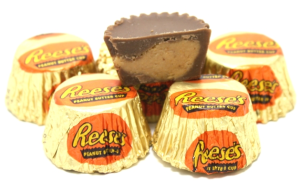
Closer and closer her hands moved toward the target. She was inches away.
I was once again forgetting to breathe.
And then, the unthinkable happened … the Reese’s cup slowly, but surely, slipped from her grasp.
We watched it drop, ricocheting off our exposure target, and then, with a few haphazard bounces, onto the floor. It whirled around like a child’s top for what seemed like minutes, made a final little pirouette, and then came to rest gently just inches from Lily’s feet.
And the floor where Lily’s feet were was definitely not very clean. Neither was our exposure target. And the Reese’s cup had made solid, undeniable contact with both.
The universe, friendly as it is, seemed to understand the urgency of the situation, the expediency that was needed right then. Time all of a sudden sped up as, without hesitation, Lily gracefully knelt down, grabbed the Reese’s cup, and popped it into her mouth.
She turned around and embraced me, tears streaming down her cheeks. We stood there in our triumphant hug, both of us crying and laughing at the same time. In that moment she had won. I had won. We had won. And OCD had lost.
Everyday advocacy
And that’s how Lily helped me get over my OCD episode. “Wait a minute!” you say. “Didn’t you help her, by doing the exposure with her?”
Well, yes, but she also helped me. We helped each other, and that’s what advocacy is all about.
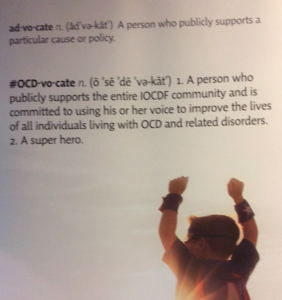 One of the reasons I wasn’t being completely successful using my “may or may not” statements after the security guard incident was that I was still stuck in my head. I needed to get outside of myself to fully win against OCD, and Lily gave me that opportunity. By directing my full attention to our joint exposure, I was able to pull out of the OCD content and realize that what really mattered was not whether I was going to jail, but whether I could make a difference in the life of someone else in that moment.
One of the reasons I wasn’t being completely successful using my “may or may not” statements after the security guard incident was that I was still stuck in my head. I needed to get outside of myself to fully win against OCD, and Lily gave me that opportunity. By directing my full attention to our joint exposure, I was able to pull out of the OCD content and realize that what really mattered was not whether I was going to jail, but whether I could make a difference in the life of someone else in that moment.
And in the process, Lily made an incredible difference in mine, as she reminded me of the power of everyday advocacy. How advocacy is not always about doing big deeds. How it can be about reaching out to share something of yourself with one other person who is struggling. How it can be a simple act. How it can happen in the span of minutes. And how by helping another person, you almost always end up helping yourself as well.
Be an #OCDvocate
If you have not yet signed up to be an IOCDF #OCDvocate, now’s the time. Because all of us—people with OCD, family members, friends, clinicians, researchers—we can all be advocates every day, in ways big and small.
Oh, and just in case you are wondering, the security guard came around in the end, recognizing that having several hundred people touch a dumpster was actually in the service of overcoming OCD. Although who knows … Jon and I still might end up getting in trouble or landing in jail … but I think we’re both willing to live with that uncertainty.
I’m guessing I’ll never look at Reese’s cups the same way again, and that’s OK, because they will always remind me of the 2015 conference, and the camping trip, and how Lily and I helped each other, and the incredible power of everyday advocacy.
*Lily’s name has been changed.

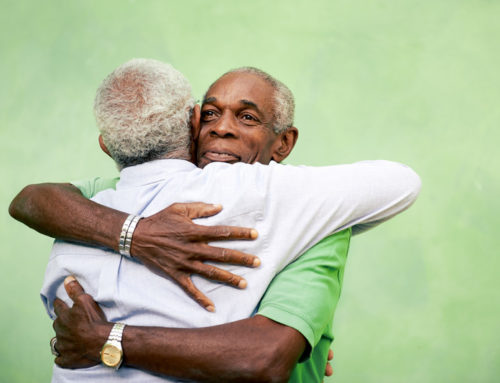
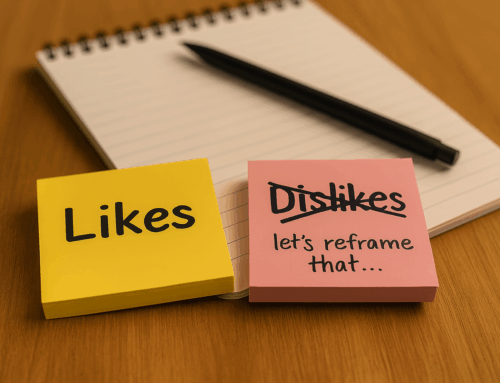
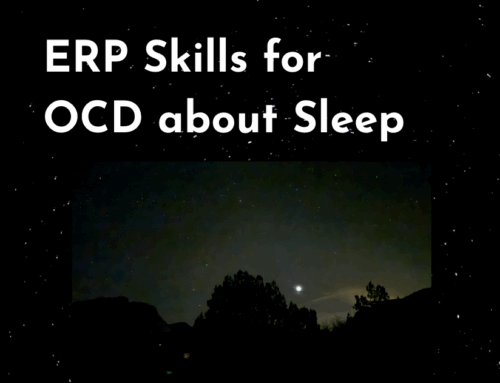
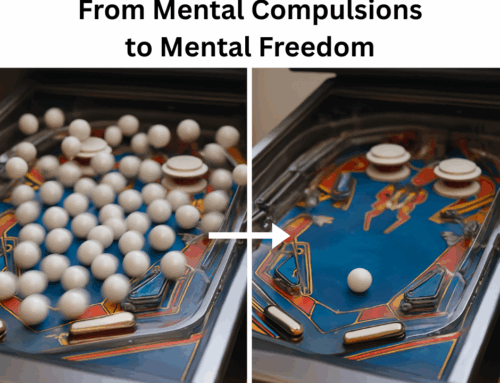

[…] Nicely, our 2013 keynote speaker, recently published a two-part blog about her experience at this year’s Conference. In these blogs she shared her thoughts on […]